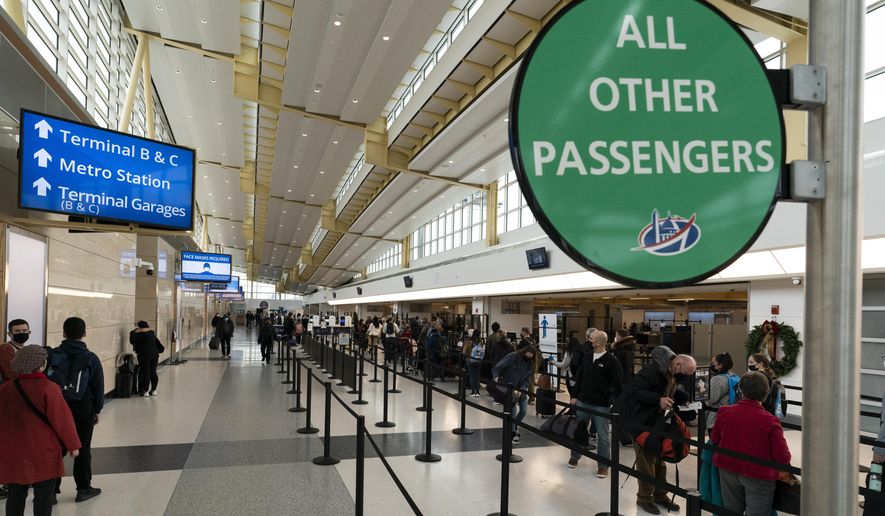A version of this story appeared in the daily Threat Status newsletter from The Washington Times. Click here to receive Threat Status delivered directly to your inbox each weekday.
Vice President Kamala Harris said the Biden administration is imposing new binding requirements on federal agencies’ use of artificial intelligence, intending to improve safety, transparency and oversight of the powerful new tech tools.
The government-wide policy from the White House Office of Management and Budget announced on Thursday reveals the federal government’s priorities for AI governance as it works to implement President Biden’s AI executive order issued last year.
Ms. Harris told reporters that the Biden administration’s new rules mean government agencies will need to verify that their usage of AI does not endanger Americans’ rights and safety.
“If the Veterans Administration wants to use AI in VA hospitals to help doctors diagnose patients, they would first have to demonstrate that AI does not produce racially biased diagnoses, so that I offer as an example,” Ms. Harris said.
Questions persist about how the Biden administration intends to verify that AI tools will not cause harm. Asked about the verification process on Wednesday, a senior Biden administration official told reporters the AI systems will undergo very rigorous testing without providing details of how that would be accomplished.
A White House fact sheet gave another example of how the new guidance will play out: Airport travelers will be able to opt out of the Transportation Security Administration’s facial recognition technology without any delay or losing their place in line.
Passengers seeing the TSA’s new technology in action at Ronald Reagan Washington National Airport have experienced a different reality.
Sen. Jeff Merkley, Oregon Democrat, attempted to opt out of the facial recognition technology last year at that airport in Virginia and was pressured by a TSA agent telling the senator to stand aside while other passengers were allowed to continue onward.
“I started to step forward and give my ID and he said, ‘Stand aside, you wait here,’” Mr. Merkley said in a video published to his Senate website showing the TSA agent’s actions. “And so I did, and in the end, was able to pass through just fine.”
More information about how the federal government uses people’s personal information could be forthcoming.
Ms. Harris said a second binding requirement involving transparency means federal agencies will need to publish a list of AI systems that the agencies are using and make it available online each year. Alongside identifying the systems, Ms. Harris said the agencies will need to publish risk assessments that detail how the government is managing danger.
It is unclear how the Biden administration will measure AI risk. The Departments of Treasury and Commerce said this week that they are considering applying AI “nutrition labels” on tech products that resemble the Food and Drug Administration’s mandatory food labeling regime.
The full picture of the federal government’s use of AI is unlikely to become publicly available, however, as national security and law enforcement agencies often refrain from publishing details of their AI tools amid concerns about exposing their capabilities to foreign adversaries.
Ms. Harris said a third requirement of the new guidance directs all federal agencies to designate a chief AI officer. Existing AI chiefs are already meeting regularly with the OMB and the White House Office of Science and Technology Policy to prepare for the Biden administration’s AI makeover, according to a White House fact sheet.
“These three new requirements have been shaped in consultation with leaders from across the public and private sector from computer scientists to civil rights leaders to legal scholars and business leaders,” Ms. Harris said. “President Biden and I intend that these domestic policies will serve as a model for global action.”
Ms. Harris has led the Biden administration’s efforts to secure international cooperation on making rules for AI. Last week, the United Nations General Assembly approved its first resolution on AI, sponsored by the U.S., which Ms. Harris said charted a path for all nations to gain access to AI resources and expertise.
• Ryan Lovelace can be reached at rlovelace@washingtontimes.com.




Please read our comment policy before commenting.